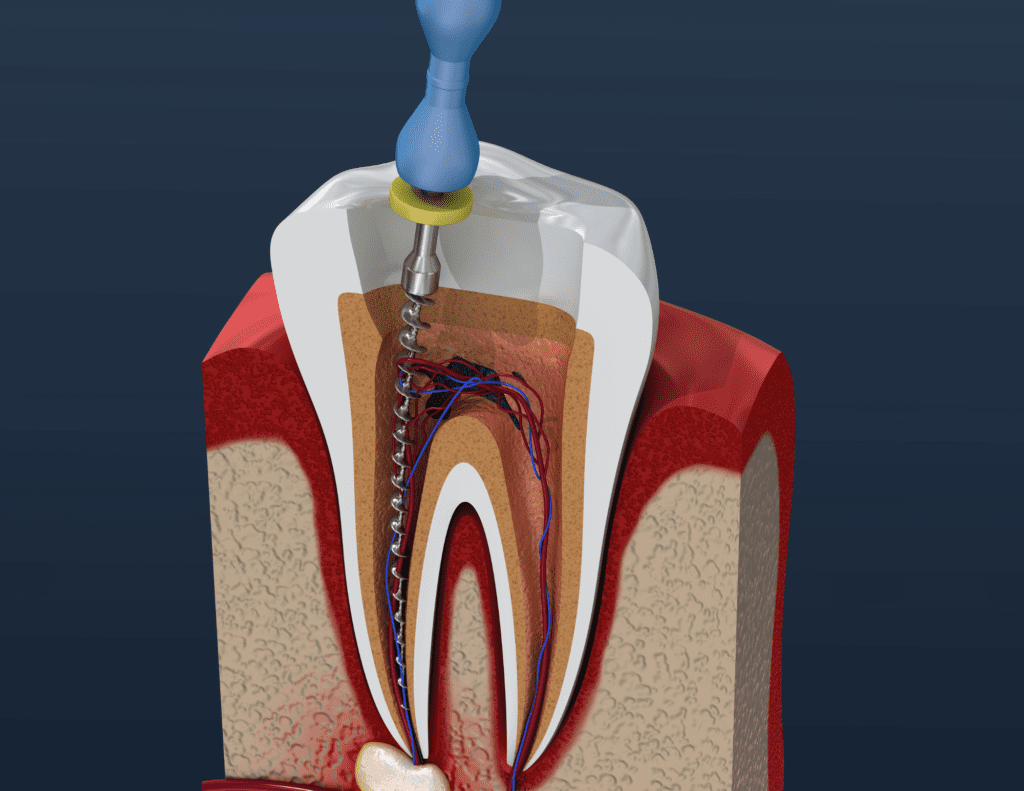Root canal therapy is the process of removing the nerve from your teeth and cleaning out the canal where the nerve resides. This is often performed when the nerve has become inflamed or infected with a disease process. The disease process could include large decay that has reached the nerve, tooth fracture that has revealed the nerve to oral bacteria, or trauma to the tooth.
How to determine if a tooth needs Root Canal Therapy?
The Final diagnosis of root canal therapy should be determined after examination and radiographs reviewed by your dentist. However, you can be aware of these signs and symptoms of possible nerve involvement.
- Spontaneous pain that isn’t triggered by any food or drink
- Gum Bump or swelling of gum or face
- Pus Drainage or foul taste in the mouth
- Tooth pain upon chewing
- Hypersensitivity to Hot/Cold things that last more than 10 seconds
These are just a few common symptoms that could be resolved with root canal therapy. Root canal therapy allows for the removal of the diseased tissue and the healing of the infected tooth. Root canal therapy can prolong the longevity of your teeth by preserving your own teeth.
Myths about Root Canal Therapy?
- Myth 1: Root canal treatment is painful.
- Root canal therapy used to be painful years ago however with advancement in modern dentistry and local anesthetics, root canal therapy have become almost a painless procedure. In contrast, root canal therapy relieves toothache by removing the damaged nerve from your tooth. Root canal therapy can help alleviate toothache and any post-op discomfort can be managed by your dentist.
- Myth 2: Root canal treatment causes illness.
- The Internet has circulated misinformation claiming root canal therapy causes serious chronic illness in your body, this is absolutely false! The research study that is referenced has been highly debunked prior to the evolution of modern practices. Numerous studies confirm the safety of root canal therapy and its effectiveness in preserving tooth longevity.
- Myth 3: It’s better to pull a tooth than have root canal treatment.
- When possible, try to save your natural teeth. Even with advancements in modern dentistry, nothing replaces the function and esthetics of your natural tooth. Root canal treatment can allow you to preserve the functions and esthetics of your tooth. Once you extract a tooth, an implant and bridge may be the only remaining option. These require the further loss of tooth structure and bone. These can result in more costs for you!
Root canal therapy is a safe and effective way to preserve your natural tooth. Root canal therapy often creates fear of pain. However, Ascent Dental will provide a pain-free experience with rapid care, precise technique, and noise-canceling headphones to manage your dental anxiety.
